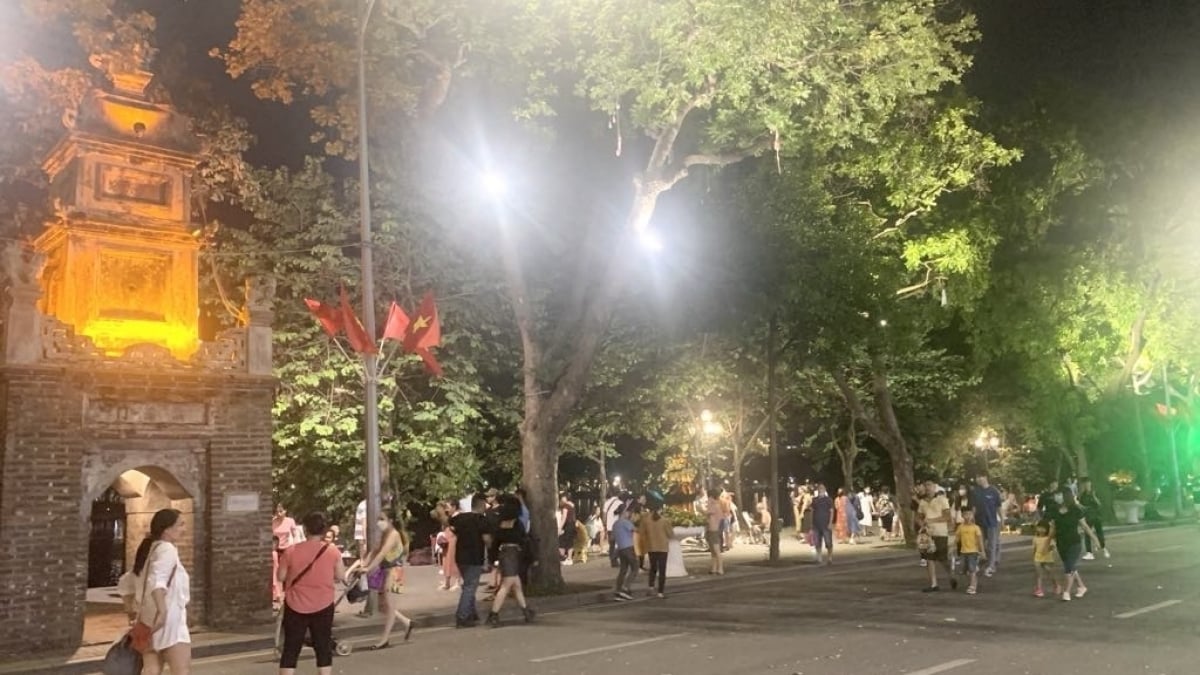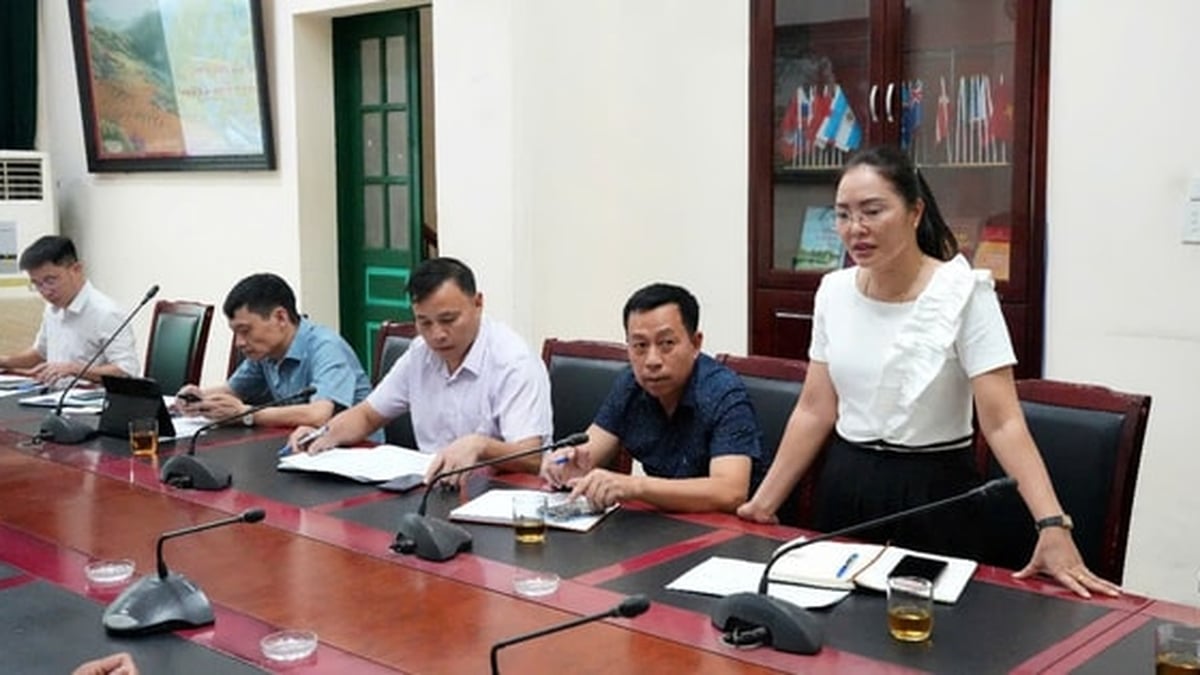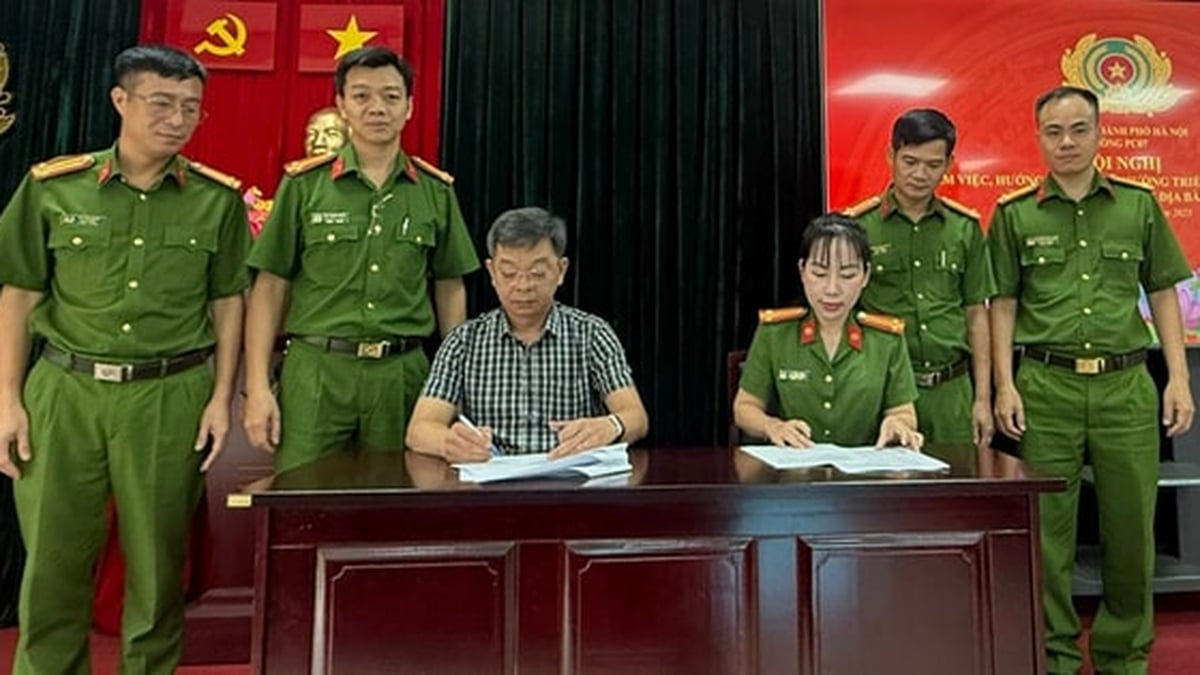This morning (November 28), 465 delegates voted in favor (accounting for 94.13%). Thus, the National Assembly officially passed the amended Law on Real Estate Business. Accordingly, the Law on Real Estate Business will take effect from January 1, 2025, ensuring policy consistency with the draft Law on Housing.
Deposit collection is not more than 5% of the selling price of future housing
Before voting to pass, on behalf of the National Assembly Standing Committee, Chairman of the National Assembly's Economic Committee Vu Hong Thanh presented a summary report on a number of major issues regarding the reception, explanation, and revision of the draft amended Law on Real Estate Business.

Chairman of the National Assembly's Economic Committee Vu Hong Thanh presented a report explaining, accepting and revising the draft revised Law on Real Estate Business (Photo: Quochoi.vn).
Regarding housing and future construction works (Clause 5, Article 23), to ensure the true nature of the deposit is reflected, while limiting risks for the buyer and hire-purchaser, who are often the weaker party, according to Mr. Thanh, the draft Law is revised in Clause 5, Article 23.
Specifically, real estate project investors are only allowed to collect deposits of no more than 5% of the selling price, lease-purchase price of houses, construction works, and floor area of construction works from customers when the houses and construction works have met all the conditions for putting into business according to the provisions of this Law. The deposit agreement must clearly state the selling price, lease-purchase price of houses, construction works, and floor area of construction works.
Regarding the conditions of housing and future construction works put into business (Article 24), according to Mr. Thanh, there are opinions that Article 24 does not clearly stipulate the responsibility of state agencies in confirming that housing, future construction works and land with technical infrastructure are eligible for business.
The National Assembly Standing Committee accepted the opinions of the delegates and proposed that the Government stipulate in the Decree detailing the Law on Real Estate Business that the provincial-level state management agency for real estate business is responsible for checking the conditions of houses put into business and responding in writing to investors about houses that are eligible for sale or lease-purchase, and is responsible for the issued documents.
Regarding payment in the purchase and lease-purchase of houses and future construction works (Article 25), Chairman of the Economic Committee Vu Hong Thanh said that the draft design has 2 options. After reviewing, the National Assembly Standing Committee chose option 1, accordingly: "If the buyer or lessee has not been granted a certificate of land use rights and ownership of assets attached to land according to the provisions of the law on land, the seller or lessor shall not collect more than 95% of the contract value; the remaining value of the contract shall be paid when the competent state agency has granted a certificate of land use rights and ownership of assets attached to land according to the provisions of the law on land to the buyer or lessee" to ensure the stability of the current policy; customers are allowed to retain a part of the contract value while waiting for the certificate to be granted.
Encourage real estate transactions through the floor
In the recently approved amended Law on Real Estate Business, the State encourages organizations and individuals to conduct transactions of buying, selling, transferring, leasing, hire-purchasing, and subleasing houses, construction works, and land use rights through real estate trading floors.
Regarding the operation of real estate trading floors, this Law stipulates that trading floors shall check the legality and conditions for putting into business of real estates put into transaction through real estate trading floors; list and provide information on real estates that are eligible for putting into business according to the provisions of this Law.
At the same time, the real estate trading floor provides services, supports, and provides information for customers to search and select real estate. It provides real estate brokerage services, supports parties in negotiating and negotiating real estate transactions. Real estate brokerage activities in the real estate trading floor must meet conditions and comply with regulations.
Real estate trading floors provide services, support parties in making and signing real estate transaction contracts. Provide services, support parties in making payments, handing over documents, papers and handing over real estate (if any) for transactions through real estate trading floors.
In addition, the real estate trading floor also stores information, records, and documents about real estate and real estate transactions conducted through the real estate trading floor. Perform services and support other content related to transactions through the real estate trading floor.
Confirm transactions through real estate trading floors; provide transaction information through real estate trading floors to the provincial-level State management agency for real estate business. The Government shall detail this Article.
Source




























![[Photo] National Assembly Chairman Tran Thanh Man visits Vietnamese Heroic Mother Ta Thi Tran](https://vphoto.vietnam.vn/thumb/1200x675/vietnam/resource/IMAGE/2025/7/20/765c0bd057dd44ad83ab89fe0255b783)








































































Comment (0)